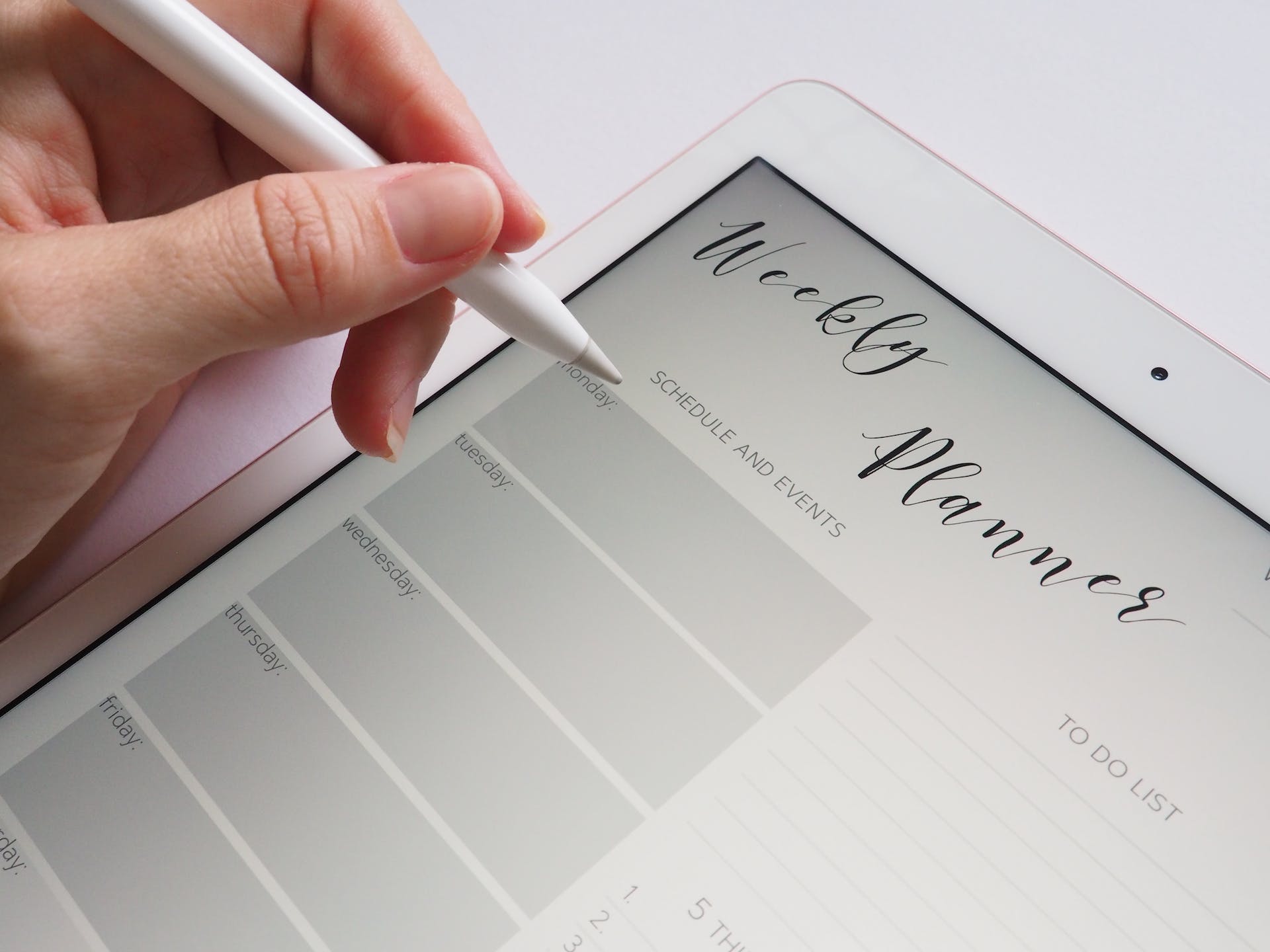Do you ever feel like the days just blend into each other, and you’re not sure how you got through the week? You’re not alone. It’s easy to get caught up in the hustle and bustle of day-to-day life that we forget to reflect on our progress, our goals, and our emotions. Taking a little bit of time each week to reflect on the past week can do wonders for our mental and emotional well-being. In this blog, we will cover everything you need to know about weekly reflection, including its benefits and how to start your own weekly reflection practice. We’ll also provide you with ten helpful questions to ask yourself during your weekly reflection, to help you make the most out of your past week and set yourself up for a better week ahead.
What is Weekly Reflection?

Weekly Reflection is the practice of assessing your behaviours, thoughts, and progress towards goals over the previous week. It is an essential part of the MäksēLife Goal-Setting System and recommends a set of questions to answer at least weekly. The objective of this practice is to help you pay attention to whatever is happening in your life so that you can make the necessary adjustments. There are reflection journals and planners available that can aid in the reflection process. It’s recommended to write about essential accomplishments of the week, plans for next week, ongoing problems, and blockers that are gathered and accessible in one location. A weekly Reflection is an effective tool that helps recharge your batteries and creates an improved week ahead.
Benefits of Doing a Weekly Reflection
The benefits of a weekly reflection are numerous. A weekly reflection enables you to pause and evaluate your thoughts, actions, and behaviours over the last week. By doing so, you track your progress on your goals and identify gaps that need to be filled to improve your performance. As you reflect, you gain greater self-awareness, which is essential for personal growth. Through weekly reflections, you can identify what’s important to you, capture essential memories, and learn from them. Moreover, by establishing a weekly reflection routine, you promote mental and emotional well-being, which can lead to a better quality of life. So, take some time to reflect on your week, and you’ll see a significant improvement in your life.
How to Do a Weekly Reflection
Weekly reflection can be a powerful tool for evaluating your week and improving your goal achievement. It allows you to stay aware of your behaviours, thoughts, accomplishments, and memories. Consider using tools like Koan to document your progress, overcome obstacles, and track your goals in a transparent location. Crafting a written journal of your reflections is also a great way to maintain a record of your progress. Regularly reflecting on your week is a time for honesty and an opportunity to learn from your experiences and make necessary adjustments. So if you want a better week ahead, be sure to spend time reflecting on the past one.
1. Identifying Areas of Improvement
When it comes to doing a weekly reflection, the first step is to identify areas of improvement. This includes taking a look at your progress from the previous week, identifying critical objectives and any key results updates, and prioritizing your goals for the upcoming week. It’s also essential to address any potential issues or concerns that may limit progress.
To help with organization, consider using a weekly planner with features such as goal tracking, habit tracking, a to-do list, reflection prompts, and a journal. Additionally, it can be helpful to review and plan out your week using a printable weekly overview planner, which can help you assess and measure your progress.
Lastly, don’t forget to share any valuable team resources or updates in your weekly reflection to support the success of your team. By prioritizing and focusing on the most crucial information for the weekly status report, you can enhance team communication and ultimately achieve better results for the week ahead.
2. Setting Goals for the Upcoming Week

Weekly reflection is a great way to recharge and set yourself up for a better week ahead. It involves setting goals for the upcoming week after reflecting on the previous one. During this process, you can record wins, lessons learned, and memories in a weekly reflection journal. This will help you stay focused on your goals and progress.
To further help you prioritize and achieve your goals, make a weekly status report that outlines the essential tasks for the upcoming week. Use inspiring quotes to guide and motivate you throughout the week. Above all, be honest with yourself during weekly reflection and make adjustments as needed. This simple practice can help you stay focused, motivated, and productive.
3. Reflecting on Accomplishments
Incorporating weekly reflection into your routine can help boost your mood and set the stage for a better week ahead. Start by reflecting on your accomplishments for the previous week. Make a list of what you achieved and what you learned. Celebrating your successes, no matter how small can help boost your confidence and motivation.
To make the most of your weekly reflection, consider using printable journals and reflection worksheets to track your habits and self-care insights. You can also incorporate free weekly reflections or inspiration quote cards to increase goal-setting effectiveness and inspire yourself throughout the week.
Finally, remember to listen to the voice within and embrace the power of reflection. Consider using a display stand to showcase and celebrate your remarkable life as you continue to recharge and reflect each week.
4. Analyzing Progress
Doing a weekly reflection is a valuable practice for gaining insights into your performance and progress and adjusting your upcoming week accordingly. To begin your reflection process, start with a weekly review, which involves writing down your wins, what went well, and lessons to learn. Additionally, analyzing your progress for the week in one transparent location can make it easy to review past updates and flag progress. Being honest with yourself during the end-of-week reflection is crucial for recording memories and accomplishments and for answering self-reflection questions about personal growth. This deliberate practice can help you gain self-awareness by paying attention to whatever is happening in your life and making the necessary adjustments for a better week ahead.
5. Evaluating Habits and Behaviors

One way to conduct a weekly reflection is by evaluating your habits and behaviours throughout the week. This involves taking a step back and looking at what you did well, what you could improve on, and what changes you might need to make. It’s essential, to be honest with yourself in this process and acknowledge any areas where you may have fallen short.
To start your reflection, try doing a weekly review by writing down your wins, lessons learned, and memorable moments. This can help you identify patterns and areas of growth. As you reflect on your behaviours and habits, consider how they align with your goals and priorities.
The purpose of this reflection is to learn more about yourself, adjust as needed, and plan for the week ahead. It’s an opportunity to celebrate your successes but also to identify any areas that may require additional attention. By recording your personal growth journey, accomplishments, and goal achievements in your weekly reflection, you can track your progress and stay motivated to continue making positive changes.
6. Examining Emotions and Feelings
Doing a weekly reflection is an effective way to recharge and prepare for a better week ahead. Start by setting aside time to sit down and reflect on your week. Record your behaviours and thoughts, both positive and negative, in a journal or diary. When examining your emotions and feelings, take note of any recurring patterns or themes.
Make the weekly reflection exciting and interactive by using flashcards, mood charts, and visual boards. These tools can help you stay engaged, focused, and motivated throughout the reflection process. You can also access your weekly reflections through team pages, allowing you to track progress and prioritize goals.
Remember, reflecting on your week means being honest with yourself and paying attention to what’s happening in your life. Use the information gathered to make any necessary adjustments and plan for a successful week ahead.
7. Examining Strengths and Weaknesses
Doing a weekly reflection can be a powerful tool for personal growth and progress. One way to begin is by incorporating daily and monthly reflection worksheets, which can help to identify strengths and weaknesses over time.
A weekly reflection journal can be used to track progress and areas for improvement, allowing you to see patterns and make adjustments as needed. As you analyze your accomplishments and challenges, you can use this information to create actionable goals for the week ahead. It is also important to practice gratitude and incorporate self-care insights into your reflection, as these can help to provide a more well-rounded experience.
Consider using mood trackers as well to monitor progress and identify patterns, allowing you to stay mindful of how you are feeling and make adjustments accordingly. In order to get the most out of your weekly reflection process, it’s essential to set aside time to reflect and track your progress consistently. By doing so, you can recharge and ultimately have a better week ahead.
10 Questions to Ask During Your Weekly Reflection
Weekly reflection is a critical practice that can help you recharge and improve your productivity for a better week ahead. During your weekly reflection, ask yourself these 10 questions – What were your most significant accomplishments this week? What challenges did you face, and how did you handle them? What did you learn about yourself this week? Did you achieve your set goals for this week? How did you prioritize your tasks this week, and was it effective? Did you practice enough self-care? What tasks or projects do you need to prioritize for next week? How did you collaborate with your team this week, and what can you improve on? What new skills or knowledge did you gain this week? Lastly, how can you apply your reflections from this week to improve your productivity and overall well-being? Taking the time to answer these questions and reflect on your week can help you identify areas for improvement and make necessary changes for a more productive and satisfying week ahead.
1. What did you do good this week?
Incorporating weekly reflection questions into your routine can be a great way to improve productivity and set goals for the upcoming week. One key question to ask during your weekly reflection is “What did you do well this week?” This allows you to celebrate your achievements and recognize your strengths. It’s essential to take time to slow down and evaluate your week with weekly prompts. This reflection allows you to identify areas for improvement and make changes where necessary. By incorporating reflection into your schedule, you can see positive changes in your productivity and overall well-being. So, take a moment to reflect on your past week and set yourself up for success in the week ahead
2. What do you want to achieve next week?

During your weekly reflection, consider asking yourself a few essential questions to help prioritize your tasks and set goals. One key question to ask is, “what do you want to achieve next week?” Reflect on the successes and failures of the previous week and take strategic steps to ensure a successful week ahead.
Other important questions to ask during your weekly reflection include:
– How can I improve my productivity and get more done in less time?
– Are there any essential conversations that need to be had next week?
– What habits can I develop to promote personal development and nurture relationships?
– What is the #1 priority for next week, and how can I ensure it is accomplished?
By answering these questions and time blocking your schedule, you can be better prepared for a successful and productive week ahead.
3. What areas of your life need more attention?
During your weekly reflection, it’s essential to take a step back and evaluate the different areas of your life that need attention. To do this effectively, choose 10 questions to ask yourself during your reflection, such as “What areas of my life need more attention?” Take some time to think deeply about the answers to these questions, and use them to help you better understand your priorities.
This reflection process can help you make informed decisions in the days ahead and ensure that you are staying on track toward achieving your goals. By regularly taking the time to reflect on your life, you’ll be better equipped to handle challenges as they arise and live a more fulfilling life overall.
4. What personal growth tasks are you most excited to work on next week?
During your weekly reflection, asking yourself important questions can help boost productivity for the week ahead. Here are 10 questions to consider:
Asking yourself these critical questions can help you reflect on your past week and make adjustments for a more productive and fulfilling week ahead.
5. How did you handle my anger today?
During your weekly reflection, it can be helpful to ask yourself targeted questions in order to identify patterns, strengths and opportunities for growth. One important question to ask yourself is, “how did I handle my anger this week?” By reflecting on your emotional responses, you can better understand your reactions and make changes to manage them in a healthier way. Additionally, reflecting on your behaviours, thoughts, and feelings can give you insight into how you cope with and react to certain situations. By regularly asking yourself reflection questions, you can develop a deeper understanding of yourself and improve your emotional well-being in the long term.
6. What obstacles did you face but overcome?
During your weekly reflection, it’s essential to ask yourself the right questions to help identify areas for improvement and growth. One key question to consider is: “What obstacles did you face but overcome?” This question is designed to help you recognize the challenges you encountered during the week and how you worked to overcome them.
By reflecting on these obstacles, you can better prepare yourself for similar situations in the future and develop strategies for dealing with them more effectively. Reflection is an essential part of self-improvement, and asking helpful questions during your weekly reflection can help you improve your focus, decision-making, and productivity. So take some time to consider what worked well during the week and what could be improved upon to recharge and have a better week ahead.
7. How can you apply what you learned this week to your next goal?
A weekly reflection can help you to recharge and prepare for a better week ahead. Here are ten questions to ask yourself during your reflection:
Reflecting on completed goals or tasks, determining key actions for the future, reviewing your calendar, and taking time to enjoy your weekend can all contribute to a more productive and fulfilling week ahead. Don’t forget to celebrate your accomplishments and keep your top priority in mind for next week.
8. What did you enjoy doing this week?

Incorporating weekly reflection questions into your routine can help increase productivity and prepare you for a successful week ahead. One question to consider during your weekly reflection is, “What did you enjoy doing this week?” Reflecting on enjoyable experiences can provide insight into what energizes you and motivates you to work towards your goals. It’s essential to also reflect on accomplishments and lessons learned from the past week and set a specific goal for the next week. A weekly review can give you a fresh start and motivation to achieve your goals. Consider implementing calendar reminders or project management tools to establish a regular weekly reflection habit.
9. What were some positive changes or accomplishments that you were proud of?
A reflection is an essential tool for personal growth and development, and taking the time to reflect each week can help to increase self-awareness and motivation. Here are 10 questions to ask during your weekly reflection:
10. How can you incorporate the lessons learned from this week into your plans for the upcoming week?
Reflecting on these questions can help you accurately gauge your performance and progress, celebrate accomplishments, and learn more about yourself.
Conclusion
Weekly reflection is an effective way to recharge and improve your overall well-being. It brings clarity and focus and helps in setting priorities. Regularly assessing your progress and reflecting on your goals can help you build good habits, track your progress, and make any necessary changes to stay on the right track. It is an insightful practice that can help you grow in every aspect of your life. If you want to start benefiting from this practice, check out our 10 questions to ask during your weekly reflection and invest in yourself.
FAQ
How do you write a weekly reflective journal?
To create a habit of consistent weekly reflection and achieve long-lasting benefits, start by using a plain notebook and pen to keep things simple. Answering prompts or questions to guide your reflection can keep you focused, and personalizing your journal to suit your style can help keep you motivated.
When writing your weekly reflective journal, remember to be honest and open without hesitating. By reflecting regularly, you will be able to understand your thoughts and experiences better and make positive changes in your life.
What is the importance of weekly reflection?
Weekly reflection is a critical practice that can help you track progress, gain insights, and identify areas for improvement in your personal or professional life. Through honest and self-aware reflection, you can record memories, behaviours, and insights to understand yourself better.
Reflections also serve as a status report to gather insights in one location, review past updates, and flag progress towards meaningful goals. Consider using weekly reflection planners like Daily Reflection + Affirmation Planner and Minimalistic Printable Planner to help cultivate and prioritize reflection.
By adopting regular weekly reflection practices, you can improve goal accomplishment, enhance personal growth, and cultivate a sense of accomplishment.



![Task Management vs Project Management [Ultimate Guide]](https://planzer.io/wp-content/uploads/2023/06/Task-Management-vs-Project-Management-Ultimate-Guide-768x432.png)